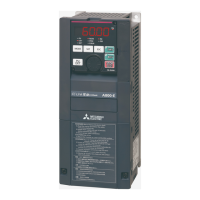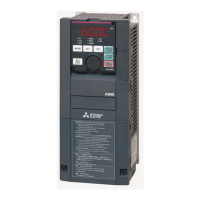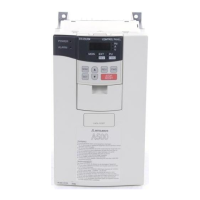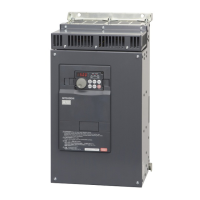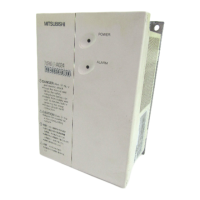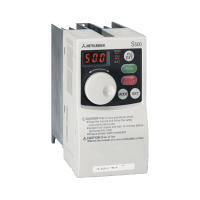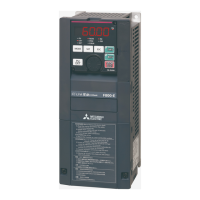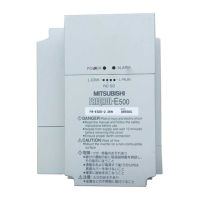Torque control under Real sensorless vector control and vector control
214
PARAMETERS
NOTE
• During Real sensorless vector control, offline auto tuning must be performed properly before starting operations.
• The carrier frequency is limited during Real sensorless vector control. (Refer to page 277.)
• Torque control cannot be performed for low-speed regenerative driving and low-speed light load. Vector control must be
selected.
• Performing pre-excitation (LX signal and X13 signal) under torque control may start the motor running at a low speed even
when the start signal (STF or STR) is not input. The motor may run also at a low speed when the speed limit value = 0 with a
start command input. It must be confirmed that the motor running will not cause any safety problem before performing pre-
excitation.
• Switching between the forward rotation command (STF) and reverse rotation command (STR) must not be performed during
operations under torque control. Otherwise, an overcurrent trip (E.OC[]) or opposite rotation deceleration fault (E.11) will
occur.
• When performing continuous operations under Real sensorless vector control in FR-A820-00250(3.7K) or lower or FR-A840-
00126(3.7K) or lower, the speed fluctuation increases at 20 Hz or less, and in the low-speed range of less than 1 Hz, there
may be torque shortage. In such case, make a stop once and start again to improve the operating condition.
• If starting may occur while the motor is coasting under Real sensorless vector control, the frequency search must be set for
the automatic restart after instantaneous power failure function (Pr.57"9999", Pr.162="10").
• When Real sensorless vector control is applied, not enough torque may be provided in the ultra low-speed range of about 2
Hz or lower.
Generally, the speed control range is as follows.
For power driving, 1:200 (2, 4 or 6 poles) (available at 0.3 Hz or higher when the rating is 60 Hz), 1:30 (8 or 10 poles)
(available at 2 Hz or higher when the rating is 60 Hz).
For regenerative driving, 1:12 (2 to 10 poles) (available at 5 Hz or higher when the rating is 60 Hz).
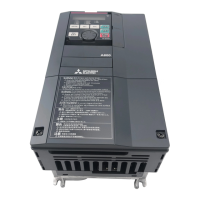
